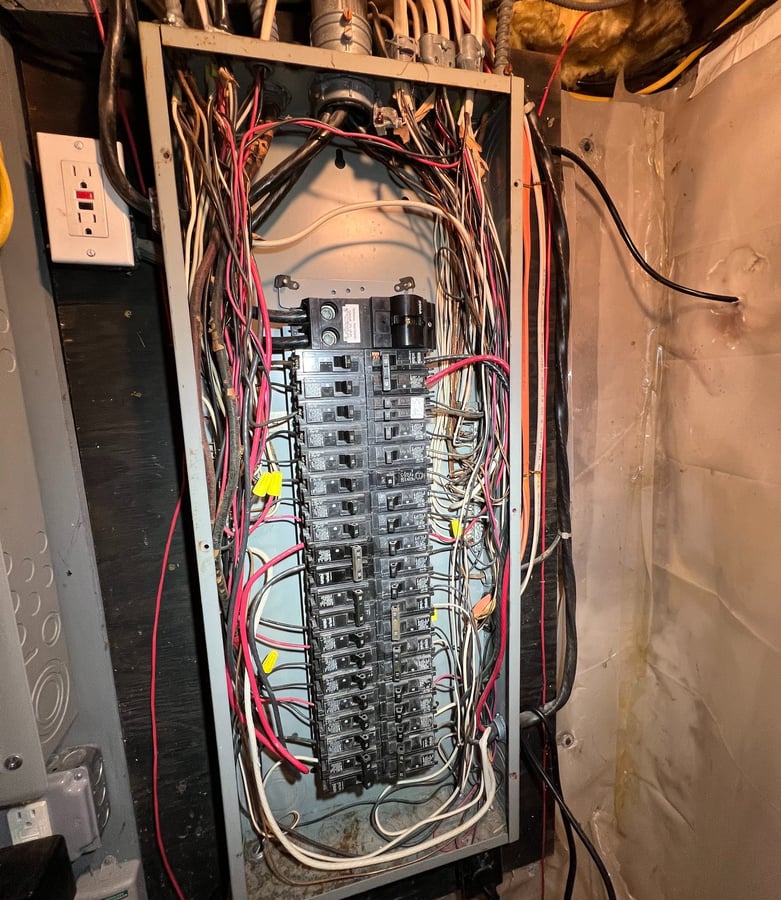Don't Skip the Panel
Why Inspecting the Electrical Panel is Crucial During a Home Inspection


Buying a home is a big decision, and ensuring its safety is paramount. While visible components like outlets and switches get attention, there's a hidden hero in your home's electrical system: the electrical panel. Inspecting its interior during a home inspection is not optional; it's essential. Here's why:
Safety First:
Fire Hazard Detection: Faulty wiring, overloaded circuits, and outdated panels are the leading causes of electrical fires. Inspecting the panel reveals signs of these dangers before they spark disaster.
Shock Prevention: Loose connections, damaged components, and improper grounding can lead to shocks. A thorough panel inspection identifies these issues, protecting you and your family.
Peace of Mind and Informed Decisions:
Understanding Capacity: Knowing the panel's amperage rating and available circuits helps assess your future electrical needs and potential upgrades.
Identifying Future Costs: Anticipating potential panel repairs or replacements based on their condition empowers you to budget and negotiate effectively.
Avoiding Hidden Problems: Unseen issues can turn into costly repairs later. A qualified inspector's trained eye can uncover hidden dangers before they become major problems.
Remember:
Qualified Professionals Only: Inspecting the panel requires expertise and proper safety gear. Leave it to a licensed home inspector.
Beyond Visual Checks: While the inspector visually assesses the panel, they may also use specialized tools for further evaluation.
Detailed Report: The inspector's report will detail their findings, including any concerns or recommendations.
Investing in a thorough home inspection, especially including the electrical panel, is an investment in your safety, peace of mind, and financial well-being. Don't let this crucial step be overlooked.
